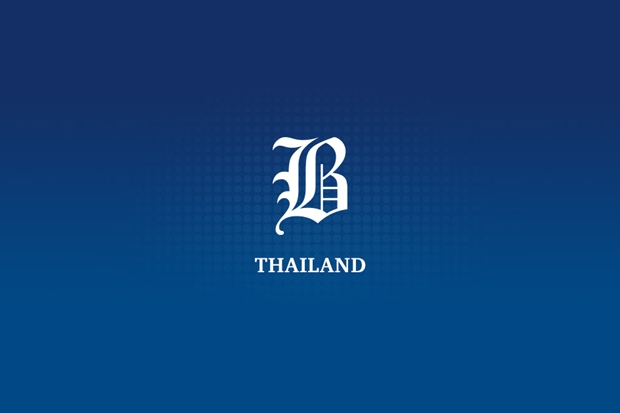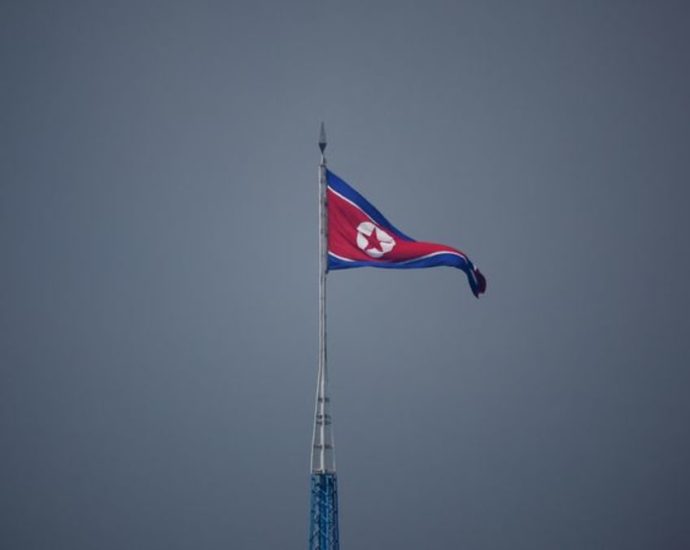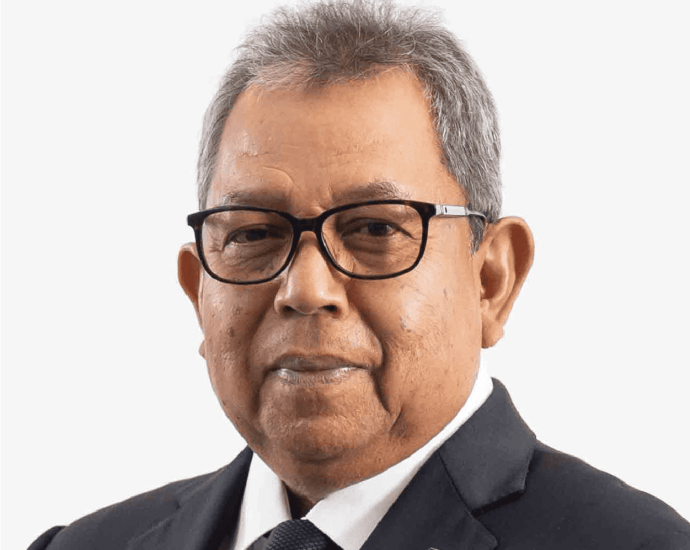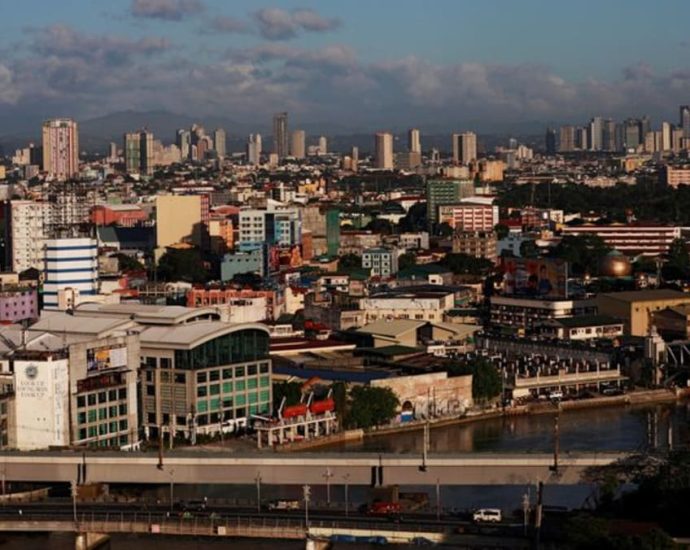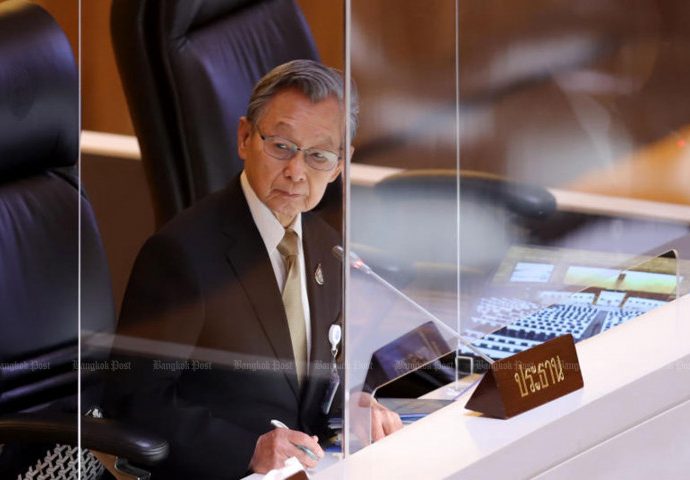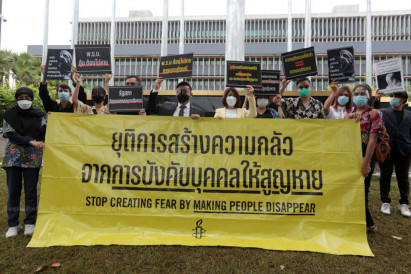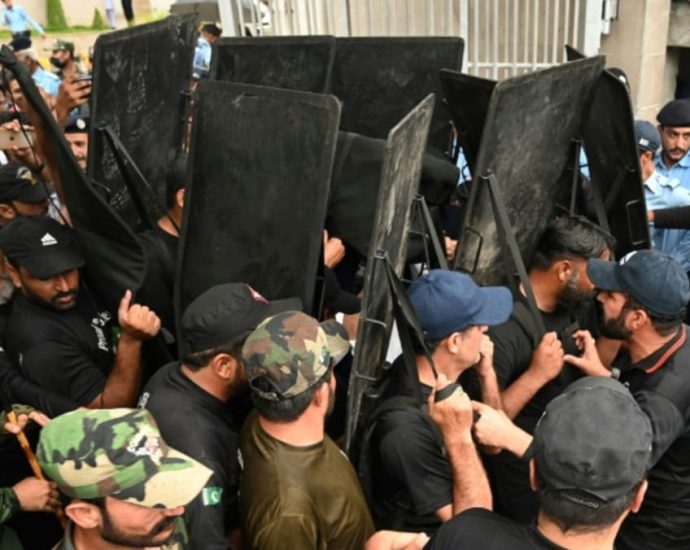Council gives nod to cull top brass

The Defence Council has approved a reform plan for the armed forces which includes a proposal to cut the number of generals by half by 2027, Col Jittanat Punnotok, a deputy Defence Ministry spokesman, said on Wednesday.
A military source said there are currently around 1,200 generals. According to Col Jittanat, the armed forces had already cut the number of military personnel by more than 8,000 between 2017 and 2021, which helped them save around 1.5 billion baht. By 2027, the total number of generals should be about 600, and the estimated savings will be 2.9 billion baht, the source said.
Prime Minister Prayut Chan-o-cha, in his capacity as defence minister, has insisted the reforms were planned long ago and had nothing to do with any intention by any new government to seek armed forces reform, the source said.
The reforms also included a decision to stop reinforcing the 7th Infantry Division in the North, meaning it will no longer be allowed to increase its personnel, said the source.
The 7th Infantry Division’s main responsibilities include supporting the 4th Infantry Division in ensuring security along the Thai-Myanmar border, the source said.
Also, troop numbers in the 3rd Cavalry Division in Khon Kaen will be frozen under the plan. It’s all part of the armed forces’ bid to enhance efficiency through restructuring, resizing and modernising, the source said.
Other changes approved by the council include a plan to slash the number of paramilitary personnel in the southern border areas by 1,656. As for recruitment, the number of recruits needed is around 90,000 per year, down from 100,000 before, he said, adding that each year around 35,000 enlist voluntarily.
That suggests the armed forces will be able to switch smoothly from forced conscription to voluntary enlistment, the source added.
North Korea missile tests endanger shipping, UN maritime agency told
LONDON: North Korean missile tests are endangering the safety of commercial shipping in busy sea lanes in northeastern Asia without enough time given for notification, several countries told a UN agency on Wednesday (May 31). Nuclear-armed North Korea’s sixth satellite launch on Wednesday ended in failure, with the booster andContinue Reading
PIKOM launches industry internship program to bridge skills gap
Hands-on experience in tech industry through a paid internship
12 weeks program, participants assigned mentor to guide them
The National Tech Association of Malaysia (PIKOM) announced yesterday the launch of the Pikom Industry Internship Program, a new initiative to bridge the skills gap in the digital industry.
The program will initially start off from…Continue Reading
SC seeks to transform agri sector via fintech, alternative financing
Access to finance is critical to agriculture’s future, said SC chairman
Capital market could help Malaysia achieve its food security agenda
The Securities Commission Malaysia (SC) encourages the broader adoption of financial technology (fintech) in agriculture to help achieve the country’s food security agenda.
SC Chairman Awang Adek Hussin (pic) said access to finance…Continue Reading
Philippine lawmakers approve US$8.9 billion sovereign wealth fund
MANILA: Philippine lawmakers approved the creation of an US$8.9 billion sovereign wealth fund on Wednesday (May 31) to boost growth and cut poverty, but critics insisted it was a “scam” and should be scrapped. President Ferdinand Marcos Jr had called for a swift passage of the bill, filed by hisContinue Reading
Chuan: MFP-Pheu Thai tussle ânot surprisingâ
Former parliament president says whoever holds speaker post must serve all parties’ interests

The ongoing tussle between Move Forward and Pheu Thai — the nation’s two biggest parties — over who should hold the parliament president’s post is hardly surprising since both are not far apart in the number of seats they won in the polls, according to former parliament president Chuan Leekpai.
Each party is sticking to its demand to propose a candidate for the seat in a vote that is expected to be held on July 26, eight days before the new prime minister is elected in parliament.
The Move Forward Party (MFP) won 151 MP seats, just 10 more than Pheu Thai. Naturally, both feel they have a legitimate right to propose one of their own for the role of speaker of the House of representatives, who also serves as the parliament president.
More Forward has insisted that the tradition of having the head of the legislative branch come from the biggest party should be followed. The party has many draft laws ready that it wants to see pushed through for parliamentary debate with the help of the parliament president. Having someone in the chair from their own ranks would ensure this happens, according to the party.
On the other hand, Pheu Thai argues there should be some sort of trade-off. As Move Forward is set to land the prime ministerial post, the role of parliamentary president should be handed over to Pheu Thai.
The MFP is perceived as trying to secure the presidency in order to push its own legislative agenda. Nonetheless, critics say the parliament president should serve not just one agenda, but all parties.
Mr Chuan, also a former leader of the Democrat Party, said it was incorrect to assume the post of parliamentary president can be exploited for partisan interests.
A parliamentary president is also less powerful than before. For instance, the president can no longer nominate a prime ministerial candidate of their own choosing for royal endorsement; the president can only submit the name of a prime minister elected by parliament to be royally endorsed.
Generally, the head of the legislative branch must remain impartial in executing their duty. They must relinquish the role of being an executive of their political party before taking up the presidency, said Mr Chuan.
The parliamentary president must also be well-versed in law and parliament regulations. “They can’t do as they please or hold up a draft bill. There are rules they must abide by,” he said.
Mr Chuan, 84, also clarified that when he held the parliament presidency previously, it was not he but his deputy at the time, Suchart Tancharoen, who refused to put forward a draft bill to amend Section 112 of the Criminal Code — the lese-majeste law — for parliamentary debate, deeming it unconstitutional.
The draft bill, sponsored by Move Forward, was sent back to the party for review but went no further. Most people have come to blame Mr Chuan for not allowing a debate to go ahead.
Meanwhile, Pheu Thai leader Cholnan Srikaew said on Wednesday that the issue of who occupies the speaker’s chair would not drive a wedge between his party and MFP.
Dr Cholnan is reportedly one of three Pheu Thai senior members who might be considered for the parliament president role. Although Pheu Thai has not yet released any names, the other likely candidates are Mr Suchart and Chaturon Chaisaeng.
Panel to ensure anti-torture law compliance
Wissanu says centralised database on cases likely to be set up to ensure transparency

The government has set up a panel to lay down regulations to ensure state agencies comply with the Prevention and Suppression of Torture and Enforced Disappearance Act.
The regulations must be in place to ensure standard operating procedures, Deputy Prime Minister Wissanu Krea-ngam said on Wednesday before chairing the first meeting of the national committee on anti-torture.
The move follows a Constitutional Court ruling earlier this month that the executive decree postponing enforcement of Sections 22–25 of the law until Oct 1 violated Section 172 of the constitution.
The sections involve measures to prevent abuse and harassment and keep the use of power by authorities in check, such as requiring police to use body cameras during a search and arrest, as well as producing reports for local officials and prosecutors.
Set up under the law, the committee, headed by Mr Wissanu, comprises armed forces leaders, permanent secretaries from various ministries and specialists.
Mr Wissanu, the caretaker government’s legal expert, said the regulations would also deal with data storage, such as who is authorised to store data and who can access and make use of it. The data is likely to be kept in a central database rather than separately by each agency, he added.
He said the regulations would ease enforcement of the law that requires officials to record searches and arrests, the questioning of a suspect, and yo store the data until the case is finalised.
Mr Wissanu said the government had approved a budget for operations including the procurement of cameras. Bidding will be held to prevent price collusion.
He said the caretaker government did not have to take responsibility for the enforcement delay following the court ruling, saying the term of the government that issued the decree ended in March when the House of Representatives was dissolved.
While any individual minister in charge of initiating the provisions may step down, the caretaker government itself cannot resign as it must carry on its duty to avoid a power vacuum, he explained.
According to the deputy premier, those who plan to hold the cabinet accountable may proceed but he could not figure out on what the basis such complaints would be filed.
Earlier, Somchai Srisutthiyakorn, chief strategist of the Seri Ruam Thai Party, suggested a petition should be lodged with the National Anti-Corruption Commission against the administration of Gen Prayut Chan-o-cha over the decree.
Pakistan ex-PM Khan in court as rights watchdog issues warning
Since he was ousted from office in a no-confidence vote last spring, Khan has waged an unprecedented campaign of defiance against Pakistan’s powerful military establishment, which analysts say was behind his rise and fall from power. His arrest was widely seen as payback ordered by top brass after he repeatedContinue Reading
Nepali sherpas save Malaysian climber in rare Everest ‘death zone’ rescue
Gelje said he convinced his Chinese client to give up his summit attempt and descend the mountain, saying it was important for him to rescue the climber. “Saving one life is more important than praying at the monastery,” said Gelje, a devout Buddhist. Tashi Lakhpa Sherpa of the Seven SummitContinue Reading
Nepali sherpa saves Malaysian climber in rare Everest ‘death zone’ rescue
Gelje said he convinced his Chinese client to give up his summit attempt and descend the mountain, saying it was important for him to rescue the climber. “Saving one life is more important than praying at the monastery,” said Gelje, a devout Buddhist. Tashi Lakhpa Sherpa of the Seven SummitContinue Reading

